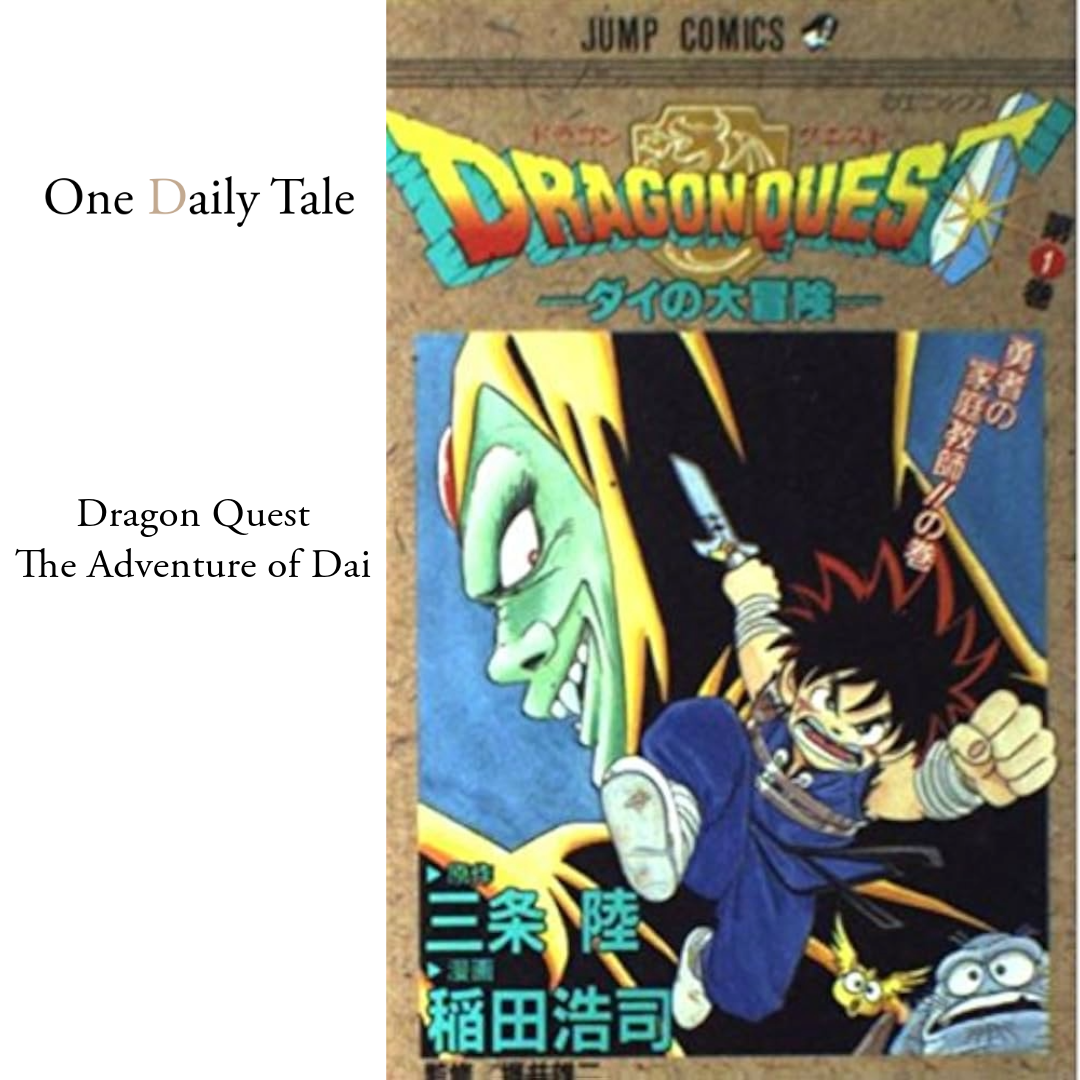My short trip to Paris to visit my dad also gave me the chance to reconnect with my best friend from middle school. We met at a prestigious middle school in Paris, located near the Eiffel Tower, surrounded by stereotypically wealthy French students. He comes from Algerian ancestry, and I am of Chinese descent, which made us feel somewhat “different” in that environment. What quickly bonded us was our shared love for Japanese culture—manga, anime, and video games. Among all the manga we enjoyed, one stood out: Dragon Quest: The Adventure of Dai.
In France, the manga was called Fly—a title change made by the editors at the time. Back then, translations were often rough and inconsistent, and context was sometimes lost. This was just over two decades ago. Today, translations are almost instantaneous, with much greater accuracy and efficiency. Despite this, many of us still view the world from a narrow, individual perspective, shaped by nationality, race, or gender. Differences undeniably exist, but rather than letting them divide us, we should use them to lift one another up.
The Story of Dai: Lessons from a Small Island Hero
The Adventure of Dai begins on a remote island inhabited by monsters. Dai, a kind-hearted boy, can communicate with these creatures and is raised by Brass, a talking monster who trains him to become a magician. However, Dai struggles with magic and dreams of becoming a hero instead.
Enter Aban, the hero who previously defeated the Demon King Hadlar. Sensing that the Demon King is rising again, Aban arrives on the island to train Dai and prepare him for the challenges ahead. Together with Popp, a magician-in-training, they form the foundation of a team that eventually takes on greater adversities.
The manga is filled with timeless themes of growth, teamwork, and purpose. Aban’s training emphasizes not only physical and intellectual development but also spiritual strength, such as meditative practices. Friendship plays a pivotal role as Dai builds a team that relies on mutual trust to overcome increasingly powerful enemies. Dai’s disregard for his origins in favor of protecting the planet exemplifies the mindset we should adopt: thinking as citizens of the world.
Popp’s Journey: From Fixed Mindset to Growth Mindset
One of the most inspiring characters in the story is Popp. Initially plagued by self-doubt and a fixed mindset, he eventually learns to embrace growth and becomes a confident leader. His transformation demonstrates the power of resilience and self-belief, inspiring even Dai to rise again during moments of despair. Popp’s evolution reminds me of the mission I’ve set for myself: to inspire those who read One Daily Tale to embrace change and work toward a better world.
Global Unity and Quadrants of Change
At a critical point in The Adventure of Dai, humankind unites through a powerful magic to save the planet from destruction. This moment resonates deeply in today’s fragmented world. Despite advancements in communication tools and global awareness, countries often act independently, neglecting the need for unified global action. This disunity has led to growing inequalities, which are now more visible than ever.
To tackle these issues, we can turn to Stephen Covey’s Quadrant Matrix from The 7 Habits of Highly Effective People:
- Quadrant 1: Urgent and important
- Quadrant 2: Not urgent but important
- Quadrant 3: Urgent but not important
- Quadrant 4: Not urgent and not important
Environmental challenges have become Quadrant 1 issues—urgent and important. At One Daily Tale, our focus is on Quadrant 2, addressing not urgent but important matters. This approach, though counterintuitive, creates lasting change. It requires individuals to work on their own Quadrant 2—developing healthier habits, fostering growth mindsets, and thinking beyond immediate gratification.
Becoming Citizens of the World
If we want to solve global Quadrant 2 issues, such as inequality and environmental degradation, we need more people to work on their individual Quadrant 2 with a global perspective in mind. At One Daily Tale, we believe this transformation is possible through consistent daily effort.
What steps are you taking to develop your Quadrant 2 habits and contribute to a global perspective? Share your thoughts in the comments below—we’d love to hear from you!










Leave a Reply